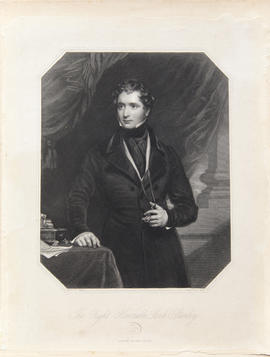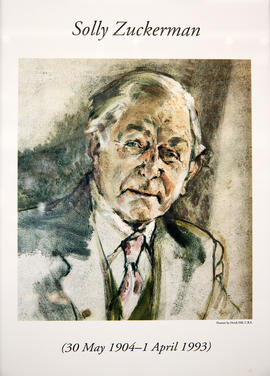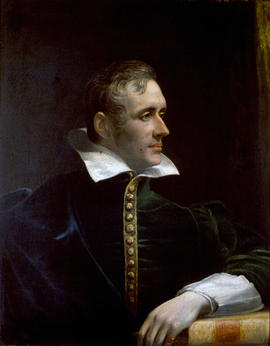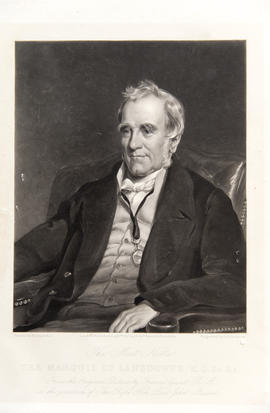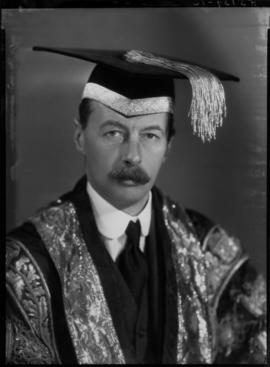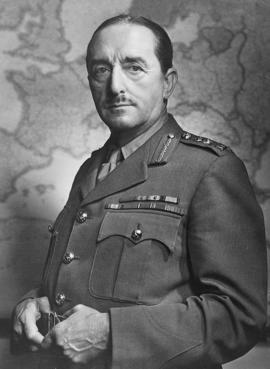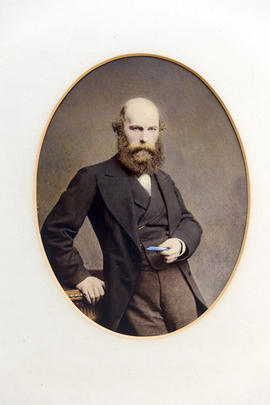Sir William MacGregor Henderson was a Scottish veterinary expert on foot and mouth disease. He was President of the Zoological Society of London 1984-1989.
Sir Martin Wyatt Holdgate was born in 1931 and grew up in Blackpool. He was educated as Arnold School. He then attended Cambridge University as an undergraduate at Queens' College, Cambridge from 1949, graduating in 1952 with degrees in zoology and botany and, subsequently, a doctorate in insect physiology.
He taught at Manchester University, Durham University and Cambridge, as well as undertaking expeditions to Tristan da Cunha, south-west Chile and the Antarctic. He was CHief Biologist to the British Antarctic Survey, then research director of the Nature Conservancy Council and, for eighteen years, Chief Scientist and head of research at the Department of the Environment. Subsequently, he was Director General of the International Union for Conservation of Nature. After his retirement he was a member of the Royal Commission on Environment Pollution and served as co-chair of the Intergovernmental Panel on Forests, and Secretary of the UN Secretary General's High-Level Board on Sustainable Development. He was President of the Zoological Society of London 1994-2004.
Edward Smith-Stanley, 13th Earl of Derby was a politician, peer, landowner, builder, farmer, art collector and naturalist. He was the patron of the writer Edward Lear.
In 1834 he succeeded his father as 13th Earl of Derby and withdrew from politics, instead concentrating on his natural history collection at Knowsley Hall, near Liverpool. He had a large collection of living animals; at his death there were 1,272 birds and 345 mammals at Knowsley, shipped to England by explorers such as Joseph Burke. From 1828 to 1833 he was President of the Linnean Society. Several species were named after him. He was President of the Zoological Society 1831-1851.
Solomon 'Solly' Zuckerman was a British public servant, zoologist and operational research pioneer. He was born in Cape Town in 1904, the second child of Moses and Rebecca Zuckerman (nee Glaser). Both his parents were the children of Jewish immigrants from Russia. He was educated at the South African College School. After studying medicine at the University of Cape Town and later attending Yale University, he went to London in 1926 to complete his studies at the University College Hospital Medical School.
He began his career at the Zoological Society of London in 1928, and worked as a research anatomist until 1932. It was in this period that he founded the intellectual dining club, Tots and Quots. In 1932, he published his work 'Social Life of Monkeys and Apes'.
He taught at the University of Oxford from 1934 to 1945, during which time he was elected to a Fellowship of the Royal Society.
He was a scientific advisor to the Allies on bombing strategy in the Second World War, for his work to advance the cause of nuclear non-proliferation, and for his role in bringing attention to global economic issues.
Zuckerman married Lady Joan Rufus Isaacs in 1939 and they had two children. He died in London in 1993 following a heart attack.
Thomas Stamford Bingley Raffles was born in 1781 on board the ship Ann, off the coast of Port Morant, Jamaica, to Captain Benjamin Raffles and Anne Raffles (nee Lyde). Raffles was a British statesman, Lieutenant-Governor of the Dutch East Indies (1811-1816), and Lieutenant-Governor of Bencoolen (1818-1824). He was the founder of modern Singapore and the Straits Settlements. Raffles was heavily involved in the capture of the Indonesian island of Java from the Dutch during the Napoleonic Wars. He wrote 'The History of Java'.
He was elected a member of the Linnaean Society on 5th February 1825. He was a founder and first president of the Zoological Society of London and the London Zoo.
Raffles died at Highwood House in Mill Hill, north London, on 5th July 1826, of apoplexy. He was survived by his second wife Sophia Hull and daughter Ella.
Henry Petty-Fitzmaurice, 3rd Marquess of Lansdowne, known as Lord Henry Petty from 1784-1809. He was the son of Prime Minister William Petty, 1st Marquess of Lansdowne (known as the Earl of Shelburne) by his second marriage to Lady Louisa, daughter of John FitzPatrick, 1st Earl of Upper Ossory. He was educated at Westminster School, the University of Edinburgh and Trinity College, Cambridge. He was a British Statesman and served as Home Secretary, Chancellor of the Exchequer and was three times Lord President of the Council.
He was President of the Zoological Society of London 1827-1831.
Edward William Spencer Cavendish, 10th Duke of Devonshire, known as the Marquess of Hartington from 1908 to 1938, was a British politician. He was head of the Devonshire branch of the House of Cavendish. He was President of the Zoological Society of London 1948-1950
Field Marshall Alan Francis Brooke, 1st Viscount Alanbrooke was a senior officer of the British Army. He was Chief of the Imperial General Staff, the professional head of the British Army, during the Second World War, and was promoted to Field Marshall in 1944. As Chairman of the Chiefs of Staff Committee, Brooke was the foremost military advisor to Prime Minister Winston Churchill, and had the role of co-ordinator of the British military efforts in the Allies' victory in 1945. After retiring from the British Army, he served as Lord High Constable of England during the Coronation of Queen Elizabeth II in 1953.
He was a noted ornithologist, especially in bird photography. He was President of the Zoological Society of London between 1950 and 1954, and Vice-President of the Royal Society for the Protection of Birds between 1949 and 1961.
Patrick Bateson was an English biologist with interests in ethology and phenotypic plasticity. He was Professor at the University of Cambridge and served as President of the Zoological Society of London from 2004 to 2014.
Colonel Arthur Hay, 9th Marquess of Tweeddale, known before 1862 as Lord Arthur Hay and between 1862 and 1876 as Viscount Walden, was a Scottish solider and ornithologist. He was President of the Zoological Society of London from 1868 . He had a private collection of birds, insects, reptiles and mammals, and employed Carl Bock to travel to Maritime Southeast Asia and collect specimens. Tweeddale described about 40 species collected by Bock for the first time and was elected a Fellow of the Royal Society in 1871.
